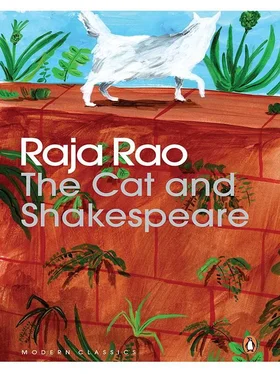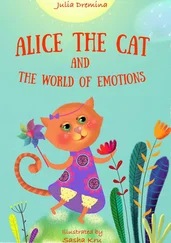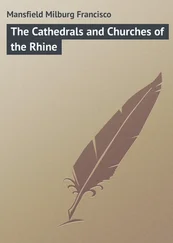Rao Raja - The Cat and Shakespeare
Здесь есть возможность читать онлайн «Rao Raja - The Cat and Shakespeare» весь текст электронной книги совершенно бесплатно (целиком полную версию без сокращений). В некоторых случаях можно слушать аудио, скачать через торрент в формате fb2 и присутствует краткое содержание. Год выпуска: 2014, Издательство: Penguin, Жанр: Современная проза, на английском языке. Описание произведения, (предисловие) а так же отзывы посетителей доступны на портале библиотеки ЛибКат.
- Название:The Cat and Shakespeare
- Автор:
- Издательство:Penguin
- Жанр:
- Год:2014
- ISBN:нет данных
- Рейтинг книги:4 / 5. Голосов: 1
-
Избранное:Добавить в избранное
- Отзывы:
-
Ваша оценка:
- 80
- 1
- 2
- 3
- 4
- 5
The Cat and Shakespeare: краткое содержание, описание и аннотация
Предлагаем к чтению аннотацию, описание, краткое содержание или предисловие (зависит от того, что написал сам автор книги «The Cat and Shakespeare»). Если вы не нашли необходимую информацию о книге — напишите в комментариях, мы постараемся отыскать её.
The Cat and Shakespeare — читать онлайн бесплатно полную книгу (весь текст) целиком
Ниже представлен текст книги, разбитый по страницам. Система сохранения места последней прочитанной страницы, позволяет с удобством читать онлайн бесплатно книгу «The Cat and Shakespeare», без необходимости каждый раз заново искать на чём Вы остановились. Поставьте закладку, и сможете в любой момент перейти на страницу, на которой закончили чтение.
Интервал:
Закладка:
I have a system of no logic, and that is the story. What logic can speak of Usha? How and what shall I say about Shantha? She lives backwards, as it were, when, with her rounded belly, she moves forward. Birth is instantaneous with time. Who is born where? Time is born in time. And that is Shantha. To be a wife is not to be wed. To be a wife is to worship your man. Then you are born. And you give birth to what is born in being born. You annihilate time and you become a wife. Wifehood, of all states in the world, seems the most holy. It stops work. It creates. It lives on even when time dies. Suppose you broke your clock, would the garden go? Suppose the garden were burned, where will the sky go? Such is woman.
I was thinking of the house and of Usha, scratching my feet, sitting on the canvas chair. The evening will slowly draw in bringing the sea nearer. How the night coming gives trees and sound a peculiar shy truth. They want to hide and go and come. Morning will reveal them, as if they had gone somewhere, and returned. The bilva tree always seems on a voyage to nowhere. It has gone and come like a clock that ticks. Time ticks. You close your eyes and open. I want to be free.
Shall I build a house for Usha? Who will give the money? I ask myself. Shantha could if she wished. My office can have her papers registered, and she could then have her disputed land, and she can sell it. Shantha loves Usha without having seen her. Shantha’s house will be the right house for Usha. Vithal my son will inherit from his mother.
‘Don’t worry, brother,’ says Govindan Nair, coming in after his bath. He has The Hindu in his hand. The newspaper is visible truth, is one of his theories. When truth becomes visible, it is a life. So the world is a life, etc., etc.
‘As true as The Hindu, I tell you I will help you to build the house.’
‘With what?’ I ask.
‘With bricks,’ he says, and roars in laughter. ‘A house, dear sir, is built with bricks. In dreams you can build it in gold. In the Mahabharata you build it in lacquer. I will build it for you in stone.’
‘But stone will make it hot.’
‘Stone gives permanence to objects. You must have a house that will last five hundred years. Someone in history will say: This house of stone, in the ruins of old Trivandrum, is one thousand one hundred years old. Look at its inscriptions. They are in Roman characters. That was the character used universally for some five hundred years. It was called the period of the big empires. They set. The Indians quarrelled among themselves. Then the Huns came. We fought the Huns. Some soldiers scratching the wall found a name. It read: Govindan Nair, Ration Clerk. They thought it meant a general. Or a prince. He who gives is a prince. I give rations or rather ration cards, so I give food. I am a prince, we will therefore build a palace. The palace of truth.’
I never could understand all that he meant. He always seemed to be pulling my leg. ‘Yes, sir, the cat always meows. That is my nature, to say meow-meow. All my language can be reduced to that — meow, meow, meowooow.’
I love Govindan Nair.
Hearing I was ill, Saroja brought Usha by the morning train. It comes in at ten-ten and she left by the evening local at four forty-three. She had boat repairs to inspect — boats had to carry away coconut shells. Her land is in the Elayathur lagoon. A patch of land surrounded by water. There are such deep-bent coconut trees. And you hear the sea.
Shantha said to me one evening: ‘When my land is sold, we’ll buy this house,’ by which she meant my house. She never came inside, but it was this house for it was mine. That is the way with woman. What belongs to you belongs to me, what belongs to the lord alone belongs. For woman is belonging, as mind is belonging — belonging to me. You can only shine of light. The shine knows its light, but to whom does the light belong? Light belongs to light. Lord, how beautiful thou hast made woman! She tells you. If woman were not, would you know you were? Shantha said: ‘You,’ and I saw I. Wonderful is man. He needs to be told he is. Then he knows he is. Looking alone he sees himself and tries to say: You. He is dumb. He cannot speak. He makes a bare movement of lips. The mirror says so. There is no sound. But sound comes and tells him: ‘You.’ Who said ‘You?’ She. Thus the world goes moving on its pivot.
Usha goes along the railway line. The railway engine is kind to her. When the wind blows in gusts, and the monsoon comes pouring through the coconut trees, the train blows and blows the whistle, and says: ‘Child, child, I am coming. Please keep away from the railway line. I am your mother. I protect you, even though you see me come and go. I dream of you in my roundhouse. In the Trivandrum roundhouse there are many old hags. They were all made in foundries before this era was born. But I was born in 1921. I have grown up among coconut trees. I have played with the Kanchi and Kali rivers. I know every bridge by its sound. I whistle past Kartikura House. I know the sound of my whistle wakes up the wildcats on your roof. They have such bright eyes. I come to protect. I am the thread of your lives. What would you do without the railway line? How will you go to school otherwise? The signal is my eldest daughter, the shunting hand my granddaughter. Children, children, who go to school, keep away from the railway line: I am passing.’ And the engine floods the line with milky light.
Man is protected. You could not be without a mother. You are always a child. The wife is she who makes you the child. That is why our children resemble us men.
And no sooner is the mind made up, than the hand does. For one morning — or was it evening? — it must have been evening, for I could see him with his body bare down to the waist, fresh with a cool bath, a cigarette in his hand (he would not smoke before his morning meal), Govindan Nair came to see me. Fat in his big presence, he stood at the door not wanting to disturb me with his smoke. I adjusted my glasses and looked up. (I must have been at my Malayalarajyam. I was away in the Hitler wars and Churchill communiques.)
He said: ‘Sir, it’s done.’
I said: ‘What?’
‘I say, sir, it is done. The thing is done. You have it when you want.’ I think I understood. But I was not sure. I was afraid to know lest the knowing be false. So I said: ‘Which?’
He said: ‘That.’
I was dumbfounded. ‘And that is?’
‘That is this,’ he said as if he had said everything. He loved, because of his big heart, to say obvious things in parables, and make you think it was all such a small affair. He was like Bhima. 7You want the flower of paradise? Why, here I go and come. And Hanuman himself will help, Hanuman his half-brother, unknown unto Bhima. Everybody is half-brother to you, man and thing. So why worry? That seemed the principle on which Govindan Nair worked: I am, so you are my brother.
‘It’s done.’ And he placed the book in front of me. It was covered with yellowed newspaper. It looked like a school exercise book. He had copied Astavakra Samhita, 8and he often carried it with him. He liked to recite ‘Aho Aham Namo Mahyam Yasyame Nastikinchana .’ 9He opened the book and started reading it out to me in beautiful Sanskrit. Though a Brahmin I knew less Sanskrit than he. And I understood even less. He recited verse after verse. (Shridhar brought us our coffee.) He read several chapters right through as if they said what he wanted to say. Then abruptly he closed the book with his left hand and started looking at the newspaper. He liked politics. He admired courage. He always loved people who went in search of the paradise flower. It meant you became half-brother to mankind. Govindan Nair loved slipping in two rupees and five rupees through windows where a child cried. He thought his intentions would help. Fortunately his wife had lands, and the rice came in plentifully. Otherwise, how to live on forty-five rupees a month, a second clerk in Ration Office No. 66? Or buy houses, you understand.
Читать дальшеИнтервал:
Закладка:
Похожие книги на «The Cat and Shakespeare»
Представляем Вашему вниманию похожие книги на «The Cat and Shakespeare» списком для выбора. Мы отобрали схожую по названию и смыслу литературу в надежде предоставить читателям больше вариантов отыскать новые, интересные, ещё непрочитанные произведения.
Обсуждение, отзывы о книге «The Cat and Shakespeare» и просто собственные мнения читателей. Оставьте ваши комментарии, напишите, что Вы думаете о произведении, его смысле или главных героях. Укажите что конкретно понравилось, а что нет, и почему Вы так считаете.












